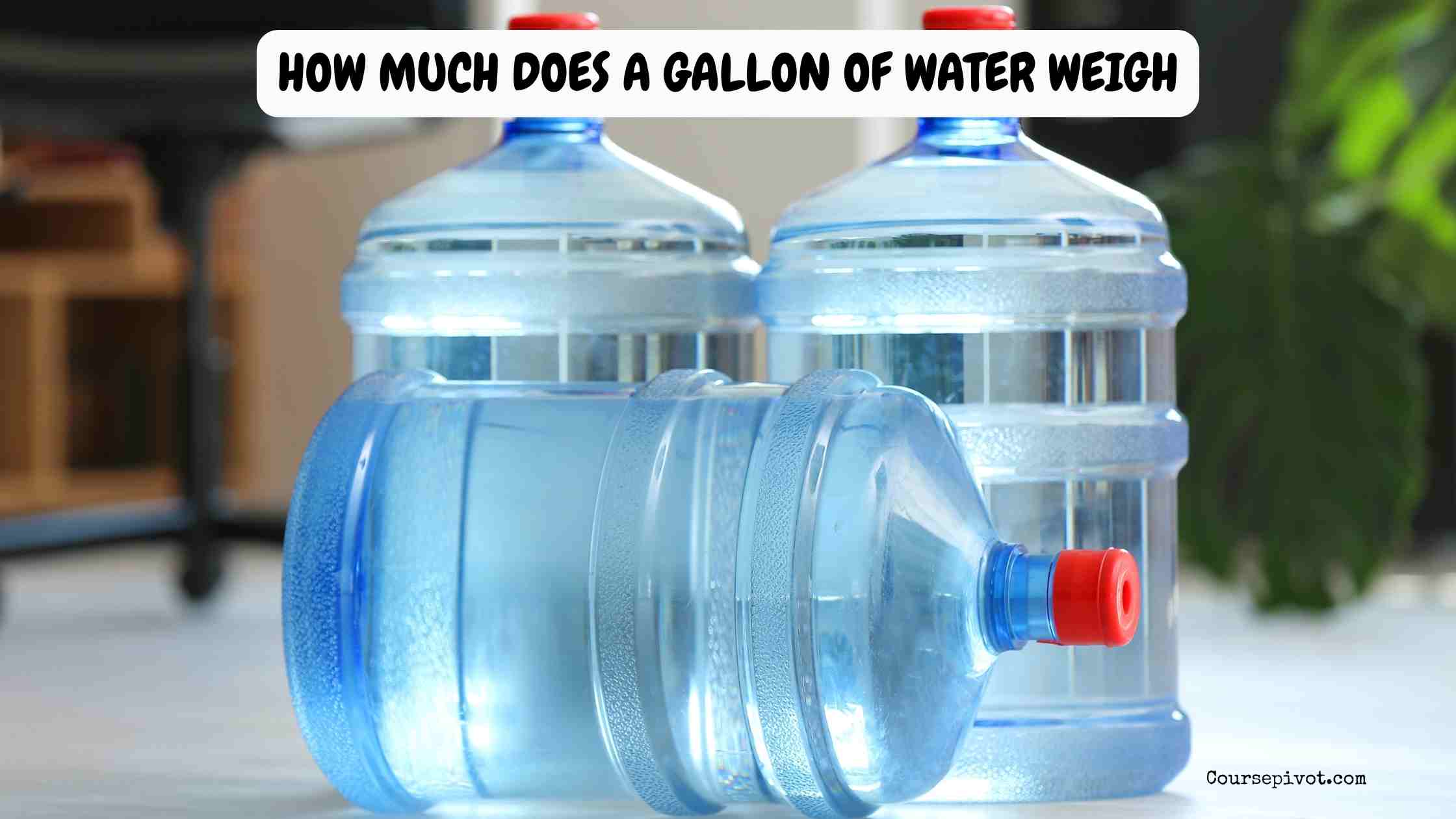
How Much Does a Gallon of Water Weigh?
Have you ever tried lifting a gallon of water and wondered about its weight? I’ve lugged water jugs for camping trips and been surprised by how heavy they feel. Knowing how much a gallon of water weighs is useful for everyday tasks, from cooking to science experiments. In this blog, I’ll explain the weight of a gallon of water, breaking down the factors that affect it and why it matters.
A gallon of water has a specific weight based on its volume and density, but conditions like temperature or impurities can slightly alter it. This topic is practical because water is everywhere—in our homes, industries, and environment. I’ve often needed this info for projects, and it’s simpler than it seems. Let’s dive into the details.
Table of Contents
Why should you care about water’s weight? Whether you’re hauling it, measuring it, or just curious, this knowledge comes in handy. This article will cover the standard weight, influencing factors, and real-world applications. Ready to weigh in on water? Let’s get started.
What Is the Standard Weight of a Gallon of Water?
A gallon of water weighs approximately 8.34 pounds (3.78 kilograms) at room temperature (around 68°F or 20°C) under standard conditions. This is based on:
- Volume: A U.S. gallon equals 128 fluid ounces or 3.785 liters.
- Density: Pure water has a density of 1 gram per cubic centimeter (or 1 kilogram per liter) at 4°C, slightly less at room temperature.
To calculate: 3.785 liters × 1 kg/liter = 3.785 kg, which converts to 8.34 pounds. I find it neat how consistent this is for pure water, making it a reliable benchmark.
Factors That Influence the Weight of a Gallon of Water
While 8.34 pounds is the standard, certain factors can slightly change the weight:
Temperature
Water’s density changes with temperature:
- At 4°C, water is densest, weighing closest to 8.34 pounds per gallon.
- Warmer water (e.g., 80°F) is less dense, weighing slightly less, around 8.3 pounds.
- Colder water near freezing expands slightly, also weighing a bit less.
I’ve noticed ice feels lighter than liquid water, and now I know why—temperature tweaks density.
Impurities and Additives
Dissolved substances affect water’s weight:
- Saltwater: A gallon of seawater, with salt and minerals, weighs about 8.6 pounds due to higher density.
- Sediments: Muddy or mineral-rich water can weigh more.
- Chemicals: Additives like sugar or chlorine slightly increase weight.
When I carried ocean water for a science project, it felt heavier than tap water. Impurities make a difference.
Measurement Standards
The type of gallon matters:
- U.S. Gallon: 3.785 liters, weighing 8.34 pounds.
- Imperial Gallon (used in the UK): 4.546 liters, weighing about 10 pounds.
I was confused when a British friend mentioned a heavier gallon until I learned about the imperial system.
Altitude and Pressure
At higher altitudes, lower air pressure can make water less dense, but the effect is minimal for a gallon. For practical purposes, this is negligible in everyday scenarios.
I’ve hiked with water at high elevations and never noticed a weight difference, confirming this factor’s minor role.
Why Does the Weight of Water Matter?
Knowing how much a gallon of water weighs is useful in many contexts:
- Daily Life: Helps with cooking, gardening, or carrying water for camping. For example, a 5-gallon jug weighs about 42 pounds.
- Industry: Guides shipping, storage, or construction, where water weight affects load calculations.
- Science: Ensures accurate measurements in experiments or environmental studies.
- Emergency Preparedness: Informs how much water to store for disasters (e.g., 1 gallon per person per day).
I’ve used this knowledge to pack just enough water for hikes, avoiding extra weight. It’s practical and saves effort.
Real-World Examples
Here’s how the weight of a gallon of water plays out:
- Household: A standard water cooler jug (5 gallons) weighs about 41.7 pounds, explaining why it’s tough to lift.
- Aquariums: A 10-gallon tank, filled with fresh water, adds 83.4 pounds (plus the tank’s weight).
- Farming: Irrigating with 100 gallons of water means handling 834 pounds, critical for equipment planning.
I once helped set up an aquarium and was amazed at how heavy the water made it. Weight adds up fast.
Challenges in Measuring Water Weight
While the standard weight is straightforward, challenges arise:
- Temperature Variations: Measuring hot or cold water requires density adjustments.
- Impurities: Unknown contaminants can skew weight, especially in natural water sources.
- Container Weight: Forgetting to subtract the jug or tank’s weight leads to errors.
I learned to check water temperature when measuring for precise recipes. Small details matter.
Read our blog on How Heat Can Be a Source of Water Pollution
Weighing Water’s Importance: Key Takeaways
A gallon of water weighs about 8.34 pounds under standard conditions, though factors like temperature, impurities, and gallon type (U.S. vs. imperial) can slightly alter this. Understanding its weight is practical for daily tasks, industry, and science, ensuring accuracy and efficiency. I’m impressed by how something as simple as water’s weight has so many applications.
Why should you care? Because knowing water’s weight helps you plan, measure, and prepare in countless scenarios. What’s stopping you from applying this knowledge? Next time you lift a water jug or fill a tank, remember: every gallon is 8.34 pounds of liquid gold.
Summarized Answer
A gallon of water weighs approximately 8.34 pounds (3.78 kg) at room temperature, based on its volume and density. Factors like temperature, impurities (e.g., saltwater weighs more), and measurement standards (U.S. vs. imperial gallon) can slightly change the weight, impacting its use in daily life, industry, and science.
Cite this article
You can copy and paste your preferred citation format below.
Martin, L. & Arquette, E.. (2025, June 3). How Much Does a Gallon of Water Weigh?. Coursepivot.com. https://coursepivot.com/blog/how-much-does-a-gallon-of-water-weigh/



